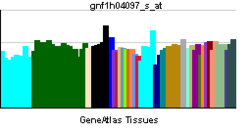ITGA9
| ITGA9 | |||||||||||||||||
|---|---|---|---|---|---|---|---|---|---|---|---|---|---|---|---|---|---|
| Identifiers | |||||||||||||||||
| Aliases | ITGA9, ALPHA-RLC, ITGA4L, RLC, integrin subunit alpha 9 | ||||||||||||||||
| External IDs | MGI: 104756 HomoloGene: 1664 GeneCards: ITGA9 | ||||||||||||||||
| Genetically Related Diseases | |||||||||||||||||
| amyotrophic lateral sclerosis, nasopharynx carcinoma[1] | |||||||||||||||||
| |||||||||||||||||
| RNA expression pattern | |||||||||||||||||
 | |||||||||||||||||
| More reference expression data | |||||||||||||||||
| Orthologs | |||||||||||||||||
| Species | Human | Mouse | |||||||||||||||
| Entrez | |||||||||||||||||
| Ensembl | |||||||||||||||||
| UniProt | |||||||||||||||||
| RefSeq (mRNA) | |||||||||||||||||
| RefSeq (protein) | |||||||||||||||||
| Location (UCSC) | Chr 3: 37.45 – 37.82 Mb | Chr 9: 118.61 – 118.9 Mb | |||||||||||||||
| PubMed search | [2] | [3] | |||||||||||||||
| Wikidata | |||||||||||||||||
| View/Edit Human | View/Edit Mouse |
Integrin alpha-9 is a protein that in humans is encoded by the ITGA9 gene.[4][5][6]
Function
This gene encodes an alpha integrin. Integrins are heterodimeric integral membrane glycoproteins composed of an alpha chain and a beta chain that mediate cell-cell and cell-matrix adhesion. The protein encoded by this gene, when bound to the beta 1 chain, forms an integrin that is a receptor for VCAM1, cytotactin and osteopontin. Expression of this gene has been found to be upregulated in small cell lung cancers.[6]
Interactions
The α9 subunit forms a heterodimeric complex with a β1 subunit to form the α9β1 integrin. This integrin participates in cell adhesion with various ligands in the extracellular matrix (ECM), including extra domain A (EDA) fibronectin, tenascin-C, ADAMs, EMELIN1, osteopontin, and VEGF.[7] α9β1 binding is independent of the RGD peptide sequence.
References
- ↑ "Diseases that are genetically associated with ITGA9 view/edit references on wikidata".
- ↑ "Human PubMed Reference:".
- ↑ "Mouse PubMed Reference:".
- ↑ Palmer EL, Rüegg C, Ferrando R, Pytela R, Sheppard D (Jan 1994). "Sequence and tissue distribution of the integrin alpha 9 subunit, a novel partner of beta 1 that is widely distributed in epithelia and muscle". J Cell Biol. 123 (5): 1289–97. doi:10.1083/jcb.123.5.1289. PMC 2119880
 . PMID 8245132.
. PMID 8245132. - ↑ Hibi K, Yamakawa K, Ueda R, Horio Y, Murata Y, Tamari M, Uchida K, Takahashi T, Nakamura Y, Takahashi T (Feb 1994). "Aberrant upregulation of a novel integrin alpha subunit gene at 3p21.3 in small cell lung cancer". Oncogene. 9 (2): 611–9. PMID 8290272.
- 1 2 "Entrez Gene: ITGA9 integrin, alpha 9".
- ↑ Høye AM, Couchman JR, Wewer UM, Fukami K, Yoneda A (May 2012). "The newcomer in the integrin family: integrin α9 in biology and cancer.". Advances in biological regulation. 52 (2): 326–39. doi:10.1016/j.jbior.2012.03.004. PMID 22781746.
Further reading
- Evans JP (2001). "Fertilin beta and other ADAMs as integrin ligands: insights into cell adhesion and fertilization.". BioEssays. 23 (7): 628–39. doi:10.1002/bies.1088. PMID 11462216.
- Yamakawa K, Takahashi T, Horio Y, Murata Y, Takahashi E, Hibi K, Yokoyama S, Ueda R, Takahashi T, Nakamura Y (1993). "Frequent homozygous deletions in lung cancer cell lines detected by a DNA marker located at 3p21.3-p22.". Oncogene. 8 (2): 327–30. PMID 8381220.
- Yokosaki Y, Monis H, Chen J, Sheppard D (1996). "Differential effects of the integrins alpha9beta1, alphavbeta3, and alphavbeta6 on cell proliferative responses to tenascin. Roles of the beta subunit extracellular and cytoplasmic domains.". J. Biol. Chem. 271 (39): 24144–50. doi:10.1074/jbc.271.39.24144. PMID 8798654.
- Yokosaki Y, Matsuura N, Sasaki T, Murakami I, Schneider H, Higashiyama S, Saitoh Y, Yamakido M, Taooka Y, Sheppard D (2000). "The integrin alpha(9)beta(1) binds to a novel recognition sequence (SVVYGLR) in the thrombin-cleaved amino-terminal fragment of osteopontin.". J. Biol. Chem. 274 (51): 36328–34. doi:10.1074/jbc.274.51.36328. PMID 10593924.
- Young BA, Taooka Y, Liu S, Askins KJ, Yokosaki Y, Thomas SM, Sheppard D (2002). "The cytoplasmic domain of the integrin alpha9 subunit requires the adaptor protein paxillin to inhibit cell spreading but promotes cell migration in a paxillin-independent manner.". Mol. Biol. Cell. 12 (10): 3214–25. doi:10.1091/mbc.12.10.3214. PMC 60168
 . PMID 11598204.
. PMID 11598204. - Eto K, Huet C, Tarui T, Kupriyanov S, Liu HZ, Puzon-McLaughlin W, Zhang XP, Sheppard D, Engvall E, Takada Y (2002). "Functional classification of ADAMs based on a conserved motif for binding to integrin alpha 9beta 1: implications for sperm-egg binding and other cell interactions.". J. Biol. Chem. 277 (20): 17804–10. doi:10.1074/jbc.M200086200. PMID 11882657.
- Majumdar M, Tarui T, Shi B, Akakura N, Ruf W, Takada Y (2004). "Plasmin-induced migration requires signaling through protease-activated receptor 1 and integrin alpha(9)beta(1).". J. Biol. Chem. 279 (36): 37528–34. doi:10.1074/jbc.M401372200. PMID 15247268.
- Chen C, Young BA, Coleman CS, Pegg AE, Sheppard D (2004). "Spermidine/spermine N1-acetyltransferase specifically binds to the integrin alpha9 subunit cytoplasmic domain and enhances cell migration.". J. Cell Biol. 167 (1): 161–70. doi:10.1083/jcb.200312166. PMC 2172529
 . PMID 15479742.
. PMID 15479742. - Vlahakis NE, Young BA, Atakilit A, Sheppard D (2005). "The lymphangiogenic vascular endothelial growth factors VEGF-C and -D are ligands for the integrin alpha9beta1.". J. Biol. Chem. 280 (6): 4544–52. doi:10.1074/jbc.M412816200. PMC 1368959
 . PMID 15590642.
. PMID 15590642. - Yokosaki Y, Tanaka K, Higashikawa F, Yamashita K, Eboshida A (2005). "Distinct structural requirements for binding of the integrins alphavbeta6, alphavbeta3, alphavbeta5, alpha5beta1 and alpha9beta1 to osteopontin.". Matrix Biol. 24 (6): 418–27. doi:10.1016/j.matbio.2005.05.005. PMID 16005200.
- Gulubova M, Vlaykova T (2006). "Immunohistochemical assessment of fibronectin and tenascin and their integrin receptors alpha5beta1 and alpha9beta1 in gastric and colorectal cancers with lymph node and liver metastases.". Acta Histochem. 108 (1): 25–35. doi:10.1016/j.acthis.2005.12.001. PMID 16430945.
External links
- ITGA9 Info with links in the Cell Migration Gateway